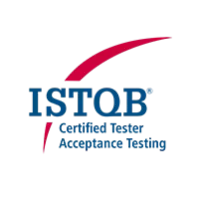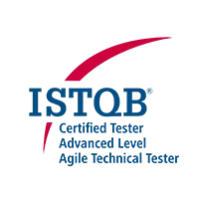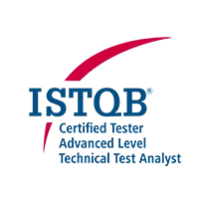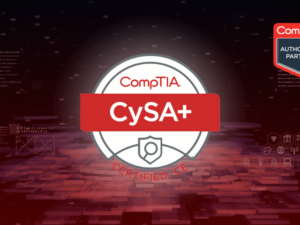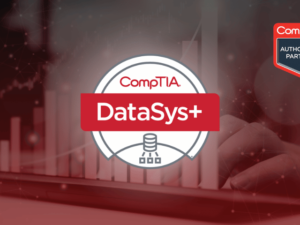CERTIFIED TESTER EXPERT LEVEL ASSESSING TEST PROCESSES (CTEL-ITP-ATP)
- Description
- Reviews
CERTIFIED TESTER EXPERT LEVEL ASSESSING TEST PROCESSES (CTEL-ITP-ATP)
COURSE DESCRIPTION
The ISTQB® Improving the Test Process – Assessing the Test Process (CTEL-ITP-ATP) certification helps prepare individuals to fulfill the specific expert role within their organization or project, and more specifically to assess and advise on test process improvement. It covers the context of improvement, recognized models for improvement, analystic approaches, selection of
an approach, and initiation of the process.
WHO SHOULD ATTEND?
The Expert Level certification is aimed at those who have already achieved an advanced point in their careers in software testing and wish to develop further their expertise in a specific area.
PRE-REQUISITES
To obtain Expert Level certification, candidates must have:
• the Certified Tester Foundation Level (CTFL) certificate
• the Advanced Level Test Manager (CTAL-TM) certificate
• passed the Expert Level Exam
• at least 5 years of practical testing experience
• at least 2 years of industry experience in the specific Expert Level topic
COURSE OBJECTIVES
The expert test process improver is able to perform each of the following tasks:
• Lead programs for improving the testing process within an organization or project and can identify and manage critical success factors;
• Take appropriate business-driven decisions on how to approach improvement to the test process;
• Assess the current status of a test process, propose step-wise improvements and show how these are linked to achieving business goals;
• Set up a strategic policy for improving the testing process and implement that policy;
• Analyze specific problems with the test process and propose effective solutions;
• Create a test improvement plan which meets business objectives;
• Develop organizationals concepts for improvement of the test process which include required roles, skills and organizational structure;
• Establish a standard process for implementing test management in an organization (project/program) with standardized delivery based on quality KPIs;
• Manage the introduction of changes to the test process, including co-operation with the sponsors of improvements;
• Understand and effectively manage the human issues associated with assessing the test process and implementing necessary changes.
COURSE OUTLINE
1. INTRODUCTION TO THIS SYLLABUS
1.1 The International Software Testing Qualifications Board
1.2 The Purpose of this Document
1.3 The Certified Tester Expert Level in Software Testing
1.3.1 Level of knowledge
1.3.2 Examination
1.3.3 Accreditation
1.4 Normative versus Informative Parts
1.5 Level of Detail
1.6 How this Syllabus is Organized
1.7 Terms and Definitions
1.8 Learning Objectives (LO) / Levels of Knowledge (K)
1.9 Expectations
2. THE CONTEXT OF IMPROVEMENT
2.1 Why Improve Testing
2.2 What can be Improved?
2.3 Views of Quality
2.4 The Generic Improvement
2.4.1 The Deming
2.4.2 The IDEAL improvement framework
2.4.3 Fundamental Concepts of Excellence
2.5 Overview of Improvement Approaches
2.5.1 Overview of Model-based Approaches
2.5.2 Overview of Analytical Approaches
2.5.3 Hybrid Approaches
2.5.4 Other Approaches to Improving the Test Process
3. MODEL-BASED IMPROVEMENT
3.1 Introduction to Model-based Approaches
3.1.1 Desirable Characteristics of Test Process Improvement Models
3.1.2 Continuous and Staged Representations
3.1.3 Assumptions in Using Models
3.2 Software Process Improvement Models
3.2.1 CMMI
3.2.2 ISO/IEC 15504
3.3 Test Process Improvement Models
3.3.1 The Test Process Improvement Model (TPI®)
3.3.2 The Testing Maturity Model Integration (TMMi)
3.3.3 Comparing TPI Next to TMMi
3.4 Content-based Models
3.4.1 STEP
3.4.2 CTP
4. ANALYTICAL-BASED IMPROVEMENT
4.1 Introduction
4.2 Causal Analysis
4.2.1 Cause-Effect Diagrams
4.2.2 Causal Analusis during an Inspection Process
4.2.3 Use of Standard Anomaly Classifications
4.2.4 Selecting Defects for Causal Analysis
4.3 The GQM Approach
4.4 Analysis using Measures, Metrics and Indicators
4.4.1 Introduction
4.4.2 Test Effectiveness Metrics
4.4.3 Test Efficiency / Cost Metrics
4.4.4 Lead-time Metrics
4.4.5 Predictability metrics
4.4.6 Product Quality Metrics
4.4.7 Test Maturity Metrics
5. SELECTING THE APPROACH FOR TEST PROCESS IMPROVEMENT
5.1 Selecting Test Process Improvement Approaches
6. PROCESS FOR IMPROVEMENT 900 MINS
6.1 Introduction
6.2 Initiating the Improvement Process
6.2.1 Establishing the Need for Improvement
6.2.2 Setting Objectives for Test Improvement
6.2.3 Setting the Scope for Improvement
6.2.4 Influence of People and Culture on the Initializing Phase
6.3 Diagnosing the Current Situation
6.3.1 Planning the Assessment
6.3.2 Assessment Preparation
6.3.3 Performing Interviews
6.3.4 Initial Feedback
6.3.5 Analysis of Results
6.3.6 Performing Solution Analysis
6.3.7 Recommending Improvement Actions
6.4 Establishing a Test Improvement Plan
6.4.1 Setting Priorities
6.4.2 Developing an Implementation Approach
6.4.3 Planning the Improvements
6.5 Acting to Implement Improvement
6.5.1 Selecting and Executing a Pilot
6.5.2 Manage and Control the Implementation
6.6 Learning from the Improvement Program
7. ORGANIZATION, ROLES AND SKILLS
7.1 Organization
7.1.1 The Test Process Group
7.1.2 Test Improvement with Remote, Off-shore and Outsourced teams
7.2 Individual Roles
7.2.1 The Test Process Improver
7.2.2 Assessor Roles
7.3 Skills of the Test Process Improver/Assessor
7.3.1 Interviewing Skills
7.3.2 Listening Skills
7.3.3 Presentation and Reporting Skills
7.3.4 Analytical Skills
7.3.5 Note-taking Skills
7.3.6 Skills of Persuasion
7.3.7 Management Skills
8. MANAGING CHANGE
8.1 Introduction
8.2 Fundamental Change Management Process
8.3 Human Factors in the Change Management Process
9. CRITICAL SUCCESS FACTORS
9.1 Key Success Factors
9.2 Setting a Culture for Improvement
10. ADAPTING TO DIFFERENT LIFE CYCLE MODELS
10.1 Adapting to Different Life Cycle Models
Please contact us for schedules and for booking a private class.
Request a Quote
Popular Courses
Archive
Working hours
| Monday | 9:00 am - 6.00 pm |
| Tuesday | 9:00 am - 6.00 pm |
| Wednesday | 9:00 am - 6.00 pm |
| Thursday | 9:00 am - 6.00 pm |
| Friday | 9:00 am - 6.00 pm |
| Saturday | Closed |
| Sunday | Closed |

